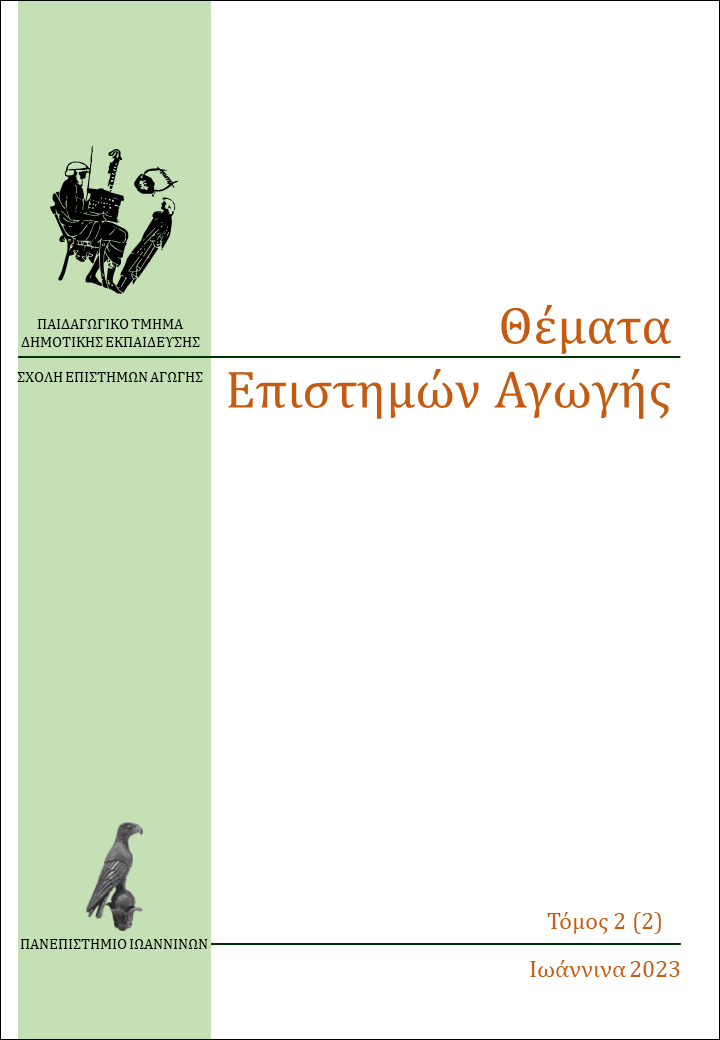Εκτιμήσεις με δεκαδικούς αριθμούς πάνω σε αριθμογραμμή και η σχέση τους με τις μαθηματικές ικανότητες σε παιδιά Ε’ και Στ’ τάξης Δημοτικού

Περίληψη
Σκοπός της παρούσας εργασίας είναι να εξετάσει αφενός την ικανότητα για την πραγματοποίηση εκτιμήσεων με δεκαδικούς αριθμούς πάνω σε αριθμογραμμή και αφετέρου τη σχέση αυτής με τις μαθηματικές ικανότητες. Για τον σκοπό αυτό, σχεδιάστηκαν και παρουσιάστηκαν σε 118 μαθητές (58 της Ε’ και 60 της Στ’ τάξης) τέσσερα έργα: α) Έργο 1: Εκτίμηση της θέσης αριθμού σε αριθμογραμμή (number-to-position – NP), β) Έργο 2: Εκτίμηση του αριθμού σε συγκεκριμένη θέση πάνω σε αριθμογραμμή (position-to-number – PN), γ) Έργο 3: Επίλυση προβλήματος, και δ) Έργο 4: Εκτέλεση αριθμητικών πράξεων. Αν και οι επιδόσεις των δύο ηλικιακών ομάδων κινήθηκαν σε παρόμοιο επίπεδο, ήταν περισσότερο επιτυχείς στις δοκιμασίες του έργου PN και στις δοκιμασίες στις οποίες οι αριθμογραμμές είχαν επιπλέον σημεία αναφοράς, πέρα από τα σημεία εκκίνησης και τέλους. Υψηλή θετική συσχέτιση βρέθηκε ανάμεσα στην ικανότητα για την πραγματοποίηση εκτιμήσεων πάνω στην αριθμογραμμή και την ικανότητα επίλυσης προβλήματος, με τους συμμετέχοντες που εμφάνισαν υψηλή επίδοση στις δοκιμασίες εκτίμησης να εμφανίζουν υψηλή επίδοση και στις δοκιμασίες επίλυσης προβλήματος. Αντίθετα, καμία συσχέτιση δεν βρέθηκε ανάμεσα στην επιτυχία των εκτιμήσεων και την εκτέλεση αριθμητικών πράξεων.
Λεπτομέρειες άρθρου
- Πώς να δημιουργήσετε Αναφορές
-
Δεσλή Δ., & Γρίβα Σ. (2023). Εκτιμήσεις με δεκαδικούς αριθμούς πάνω σε αριθμογραμμή και η σχέση τους με τις μαθηματικές ικανότητες σε παιδιά Ε’ και Στ’ τάξης Δημοτικού. Θέματα Επιστημών Αγωγής, 2(2), 1–16. https://doi.org/10.12681/thea.34635
- Τεύχος
- Τόμ. 2 Αρ. 2 (2023)
- Ενότητα
- Επιστημονική Αρθρογραφία


